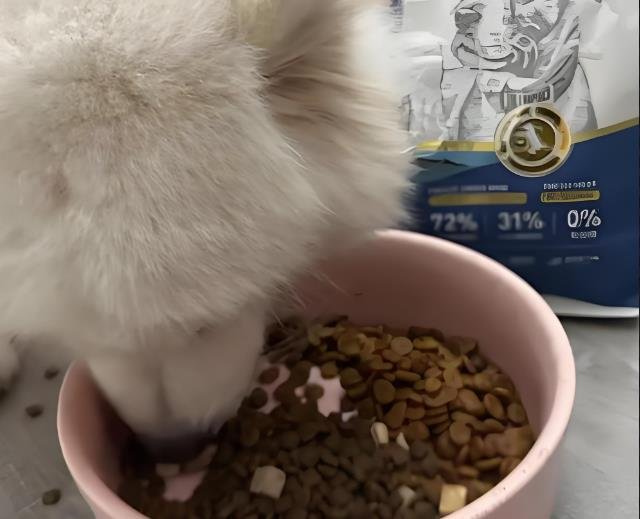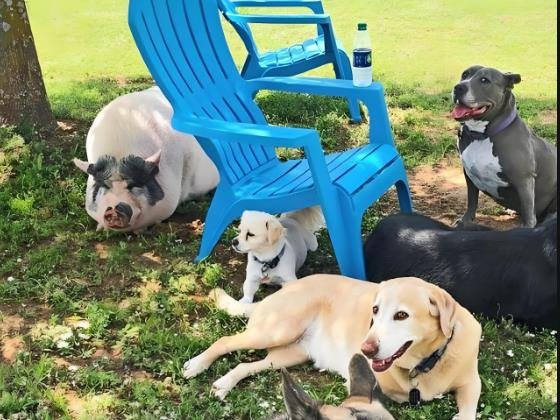Quick Intro: Is your pup hitting the “midlife” mark at 6 years old? Whether they’re a spry mini-schnauzer or a gentle giant like a Great Dane, this guide reveals how to adapt their care for a vibrant, tail-wagging future!

🐾 ”Dog Years” Decoded: Why Size Matters
Forget the old “1 dog year = 7 human years” myth! At 6 years old:
• Small breeds (under 20 lbs) = 40–45 human years (still in their prime!)
• Medium breeds (21–50 lbs) = 42–47 human years
• Large breeds (51–90 lbs) = 45–52 human years
• Giants (90+ lbs) = 49–56 human years (senior status!)
Fun fact: A 6-year-old Chihuahua is like a 30-something human gym enthusiast, while a Great Dane at 6 is closer to a 60-year-old with creaky knees.
🥘 Food Tweaks for the “Midlife Muncher”
- Protein Power vs. Senior Slump
Small breeds still need high-protein kibble (26–30% protein) to fuel their zoomies. But giants like Mastiffs? Switch to senior formulas with glucosamine for joints and 18% lower calories to dodge obesity. - Brain-Boosting Bites
Add omega-3-rich salmon or blueberries to meals. Studies show these slow cognitive decline by 40% in aging pups. - Hydration Hacks
Older kidneys work harder! Try bone broth ice cubes or wet food to sneak in extra fluids. Pro tip: Elevated bowls reduce neck strain for arthritic dogs.
🏃 Exercise: From Zoomies to Zen
Small breeds:
• 30–60 mins of fetch + puzzle toys (think: snuffle mats with hidden treats)
Large breeds:
• 20-min swim sessions (gentle on hips!) + scent games
All breeds:
• Warm-up ritual: 5 mins of gentle leg stretches before walks
Watch for: Limping after play? Time to swap tennis balls for soft rubber toys to protect aging teeth.
🩺 Health Checks You Can’t Skip
Every 6 months:
• Bloodwork: Spot early kidney/liver issues (common in seniors)
• Dental X-rays: 80% of dogs over 6 have hidden gum disease
• Joint scans: Catch arthritis before it steals their jump-on-couch privileges
At-home tests:
• “Stair check”: Hesitation climbing = possible hip dysplasia
• “Cookie test”: Dropping treats = dental pain or cognitive decline

🐶 Breed-Specific Survival Kit
- Dachshunds:
• Back brace harnesses for IVDD prevention
• Ramps instead of stairs (no more “sausage hop” injuries!)
- Labs:
• Hip-health supplements with green-lipped mussel extract
• Slow feeder bowls to prevent bloat (30% higher risk in deep-chested breeds)
- Pugs:
• Cooling mats for heat-sensitive seniors
• Nose balm to combat dry snouts from slowed oil production
🧠 Dementia Defense 101
Spot these early signs:
• Pacing at 3 AM
• Forgetting familiar commands like “sit”
• Getting “lost” in corners
Boost brainpower:
• Puzzle feeders with varying difficulty levels
• Scent trails using lavender oil (calming + mentally stimulating)
• Routine is king: Feed/walk at exact times daily
Final Thought: Your 6-year-old buddy isn’t “old”—they’re entering their wise, treat-hoarding era! With these tweaks, you’ll both enjoy more sunset walks and fewer vet surprises.
Pro Tip: Start a “senior pup journal” to track weight, energy dips, and weird habits. It’s a game-changer for vet visits!


